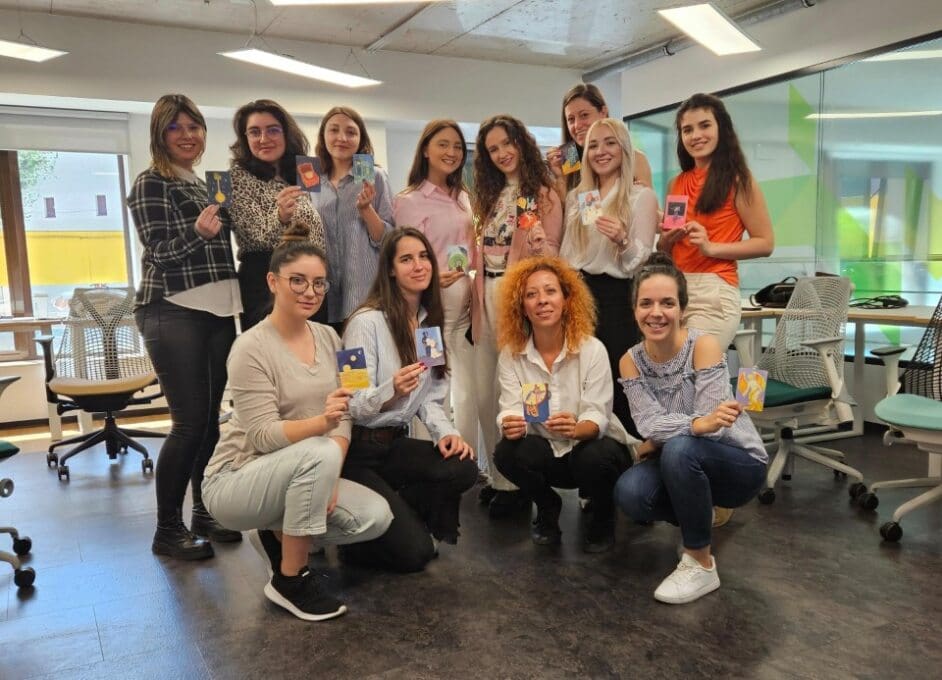Circularity in action: sustainable innovations in Amsterdam
Reflower and Dik & Schil emerge as two pioneering businesses in Amsterdam to advance the circular economy through innovative solutions. Their steadfast dedication to circular principles is evident in their disruptive approach to the industry, where they actively reduce waste and ingeniously repurpose materials to infuse new life into their products.
- Impact Hub Network
- Global team
At the heart of the CirculUP! project lies a compelling mission – to spotlight and celebrate pioneering entrepreneurs within the Impact Hub Network, who exemplify the principles of the circular economy. By sharing their journeys, our goal is to boost awareness and promote the adoption of a circular economy in Armenia, catalysing a transformative shift toward sustainability.
This is the story of two visionary entrepreneurs at the forefront of positive change in the circular economy through their groundbreaking ventures, both of whom actively engaged in Impact Hub Amsterdam‘s accelerator and incubator programmes.
Ellyne Bierman, the pioneering founder of Reflower, is revolutionising the floral industry with a forward-thinking sustainability approach. On the other front, Stijn Fischer and Branco Bolsius, the dynamic duo behind Dik & Schil, leverage their extensive expertise from the catering industry to drive circular economy initiatives.
These entrepreneurs, fueled by their commitment to circular principles, not only contribute to the success of their ventures but also play a pivotal role in advancing the broader mission of cultivating a circular economy in The Netherlands.

Reflower
Reflower is an innovative venture operating in the floral industry. It was founded by Ellyne Bierman, who recognised the need for a more sustainable approach to floral consumption. The company is based on the idea that traditional flower consumption, characterised by fresh flowers that have a very short lifespan, results in significant environmental and economic waste. Reflower aims to disrupt this model by offering an alternative approach to enjoying beautiful flowers while aligning with the principles of the circular economy.
Reflower’s main business concept is “Flowers-as-a-Service.” They contribute to the circular economy by using artificial flowers to reduce waste and lower CO2 emissions. Their artificial flowers reduce 146 kg of CO2 emissions and create 18 kg less waste per bouquet compared to fresh flowers. These artificial flowers have a lifespan of 10 years, while fresh flowers typically last only 10 days. The CO2 emissions of artificial flowers over 10 years are much lower than the emissions from buying fresh flowers frequently.
Reflower emphasises sustainability by reusing their flowers and vases, thus generating zero waste. By opting for artificial flowers, Reflower addresses the issue of pesticides commonly found in fresh flowers, thereby promoting a healthier and more environmentally friendly approach to enjoying floral arrangements. Additionally, the company also recycles or donates damaged flowers and repurposes their cardboard boxes into vases.

Dik & Schil
Stijn Fischer and Branco Bolsius, both with backgrounds in the catering industry, are on a mission to establish a circular production chain with their business, Dik & Schil. Their objective is to convert food and drink waste, accounting for 30% of discarded items, into valuable materials for beverage production. They achieve this by collecting coffee grounds and orange peels, transforming them into innovative drink products.
Their belief in the presence of nutrients and flavors within food and drink waste drives their goal to showcase the potential of reusing and repurposing these discarded materials. This perspective resonates with the principles of the circular economy, emphasising the extraction of maximum value from resources, even from waste.
Their products are found in numerous restaurants and bars, actively promoting sustainability among consumers. They also aspire to craft seasonal cocktails using rejected fruits, furthering their contribution to creating a more sustainable and environmentally conscious city.

The impact of these two ventures is substantial. Reflower’s innovative approach directly addresses environmental issues within the floral industry, demonstrating how a circular economy mindset can reduce waste and carbon emissions. Reflower serves as a model for businesses to adopt circular practices, making it clear that it’s possible to extend product lifespans and reduce the environmental footprint while maintaining quality and craftsmanship, and providing an attractive and cost-effective service.
Likewise, Dik & Schiel’s initiative highlights the potential for positive change by reusing and repurposing food and drink waste. They not only reduce the environmental impact of the catering industry but also raise awareness about the benefits of circular economy principles. Their proactive approach to waste collection and their commitment to their mission can inspire others to follow suit in Armenia, demonstrating the practicality and benefits of adopting sustainable and responsible practices.
–
This article is presented in collaboration with Impact Hub Amsterdam.
The CirculUP! project in Armenia is a transformative initiative spearheaded by the collaborative efforts of the Impact Hub Network, Impact Hub Yerevan, and the Environment and Health NGO, with support from the European Union in Armenia.
Unleash your impact potential today
Join our free global membership for the latest news, resources, and inspiring stories of entrepreneurial impact. Sign up now and ignite your journey towards making a difference.
You also might like

Empowering women entrepreneurs: insights from CAPSULE 2024 Bootcamp
Empowering women entrepreneurs: insights from CAPSULE 2024 Bootcamp

Celebrating artists tackling social and environmental issues
Celebrating artists tackling social and environmental issues

